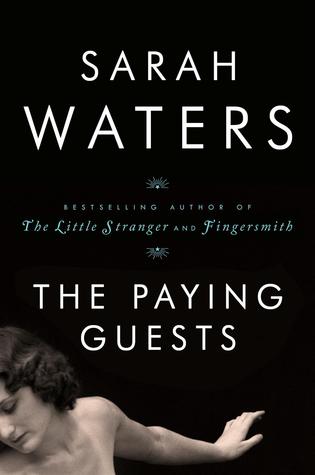I've mentioned this before, but I try to vary up the books I read, wildly shifting between genre and type of author. Once in a while, though, the library is a harsh mistress, and the books I manage to get all fall into a single category. In this case, I got a triple-feature of books by female authors with stories that are almost wholly centered around their romantic relationships.
The similarities end there, though. The stories range from the 1700s to the 1920s to today. From the UK to France to the United States. And from traditional to...very different. Not all of them were ripping reads, but they all have interesting premises.
First up was Single, Carefree, Mellow, a 2015 collection of short stories by Katherine Heiny. All of the stories revolve around the romantic entanglements of the narrator, one of whom appears in three of the stories. Generally, I'd consider that a been-there-read-that sort of idea, but Heiny does something special here. Namely, the characters don't do anything that special. People don't blow up at each other. Big, life-changing catastrophes don't arrive out of the blue. These are just normal women leading normal lives, and the stories are more about their private thoughts than any propulsive event.
Infidelity is a prevalent theme, and Heiny is great at picking apart the mess of emotions that are involved with that, whether it be an illicit thrill or gnawing guilt. Cheating isn't the only topic, though. One is simply about a mother trying to throw her kid a successful birthday party. The book's simplicity is what sets it apart from a lot of other things I've read lately, and ultimately wound up being the reason I really liked it.
I also really liked the first third of Sarah Waters' 2014 novel, The Paying Guests. I heard it talked up on some podcast, and decided to dive in. After all, how many books about forbidden lesbian love in London in the Roaring Twenties do you normally stumble across? For that first third of the book, Frances Wray and her mother reluctantly take on lodgers in order to make some much-needed money. The married couple who takes the upstairs room seem pleasant, if too loud, and Frances soon finds herself attracted to the wife, Lilian. Lilian's got complicated feelings, too, and if the book had concentrated on these two women and how they could hope to carry on a clandestine affair in these circumstances, I'd have probably loved the whole book.
Instead, the novel takes a hard right turn, and winds up spending 300 pages essentially being a Ye Olde Law & Order episode. It was really disappointing to see a story with such promise frittered away on such an unremarkable storyline. It was well-written and definitely worth the read, but it was a letdown.
Still, it wasn't as much a letdown as reading a well-regarded romance, only to find myself rolling my eyes hard enough to power a windmill. That's what happened with Outlander, Diana Gabaldon's 1991 book that kicked off an entire series (and is now a TV show). People have been going gaga for this series, and I've been meaning to check out some of the better-known works in the romance genre, if only to be a more well-rounded reader.
Outlander is told from the perspective of Claire Randall, a nurse who served in World War II, and who is spending her honeymoon in Scotland. Upon touching some mysterious standing stones, she is transported back to the 1740s, whereupon she immediately meets Jamie, a tall, handsome, redheaded stranger and is hurtled into a series of adventures with him and his clan.
The book is essentially divided into three types of scene:
-Claire and/or Jamie trying to fight and/or escape from British military pursuit and/or torture and/or rape.
-Claire and Jamie fighting, because he's a traditional Scots warrior, and she's a strong-willed, modern type o' gal!
-Claire and Jamie banging.
Just alternate those three over and over and over (and over - this book is 627 pages long), and there you have it. Now, that's not to say that this alone would have sunk the book in my estimation. Some of the action scenes are legitimately exciting. Some of the romance is legitimately romantic. Some of the bickering is... Well, the bickering is just mostly annoying, but there were some long chunks of the book that I was invested pretty heavily in what would happen to Claire and if she'd find her way back to her present and the husband who awaits her there.
Too bad the book didn't care too much about that. Too bad that Jamie is given old-fashioned misogynistic beliefs when it suits the story, but contrived to have modern-day attitudes at other times to make him sound more likable and supportive. Too bad that Gabaldon didn't just need to have her villain be a cruel sadist. She had to make him gay and romantically-obsessed with Jamie to make sure the audience understands how really terrible he is. Too bad the book spends the majority of its time building up to a big showdown with the villain, only to have him die off-page. Too bad the book ends with the most cliche story twist on Earth. Perhaps Gabaldon addresses some of these problems in the subsequent books. I sure as hell won't be finding out, though. Sorry, lass. It's the end of the line for ye.
Single, Carefree, Mellow: Stories: B+
The Paying Guests: B-
Outlander: C+
Subscribe to:
Post Comments (Atom)




0 comments:
Post a Comment